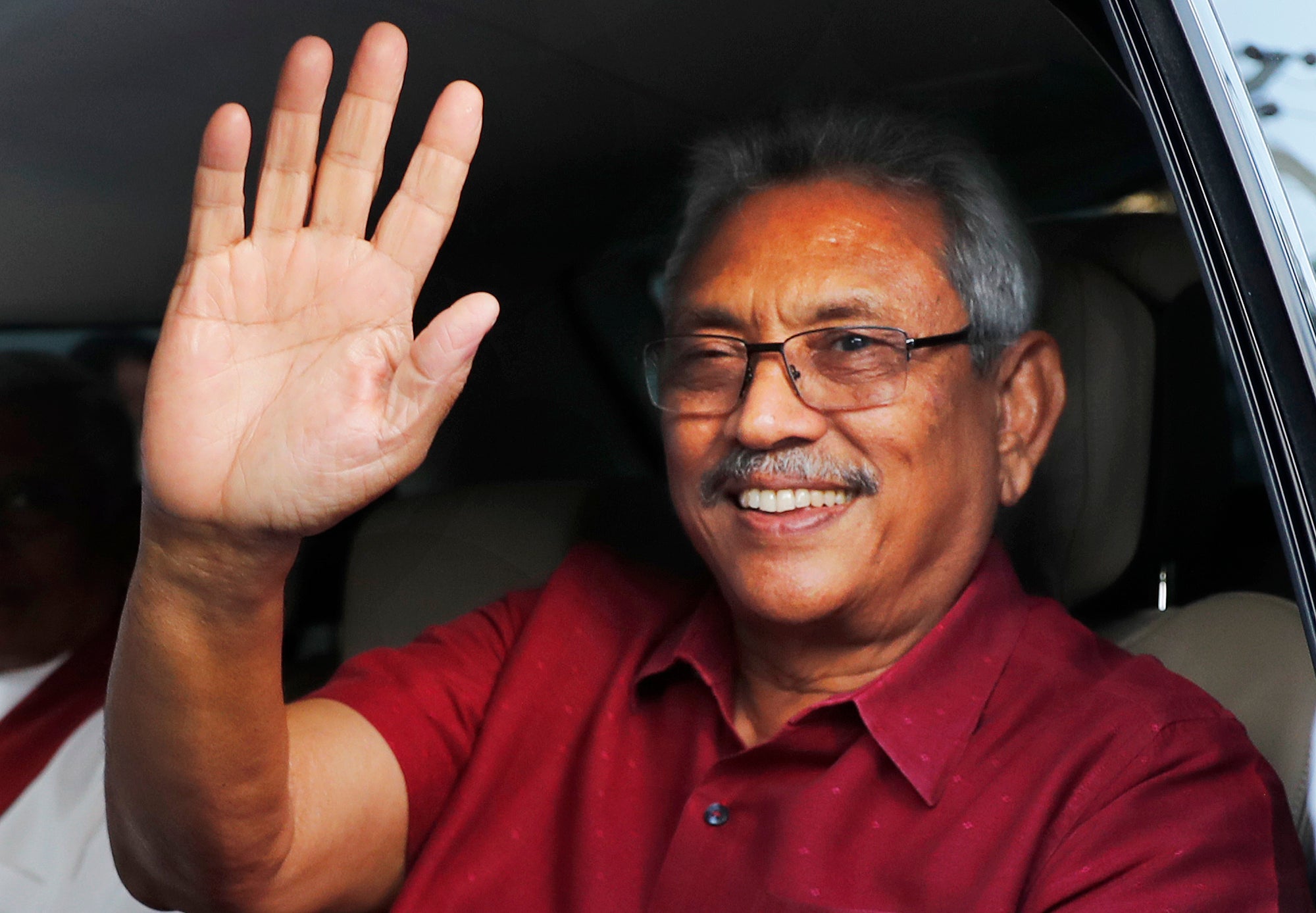Former Sri Lankan president Gotabaya Rajapaksa returns to welcoming party at airport
Ministers garland him as he disembarks at country’s main international airport

Your support helps us to tell the story
From reproductive rights to climate change to Big Tech, The Independent is on the ground when the story is developing. Whether it's investigating the financials of Elon Musk's pro-Trump PAC or producing our latest documentary, 'The A Word', which shines a light on the American women fighting for reproductive rights, we know how important it is to parse out the facts from the messaging.
At such a critical moment in US history, we need reporters on the ground. Your donation allows us to keep sending journalists to speak to both sides of the story.
The Independent is trusted by Americans across the entire political spectrum. And unlike many other quality news outlets, we choose not to lock Americans out of our reporting and analysis with paywalls. We believe quality journalism should be available to everyone, paid for by those who can afford it.
Your support makes all the difference.Sri Lanka’s 73-year-old former president, who had fled the country in the middle of a popular upsiring over an economic crisis, returned to the south Asian nation on Saturday to a welcoming party of ministers with garlands at the airport.
Gotabaya Rajapaksa, who had escaped in July after being ousted from his presidential palace by an angry mob, was returning from Thailand.
Ministers and politicians garlanded him as he disembarked at the country’s main international Bandaranaike airport, according to reports. Mr Rajapaksa had a brief stay in Thailand on a temporary visa and returned home via Singapore.
Tiran Alles, the minister for public security, confirmed to the New York Times about Mr Rajapaksa’s arrival in Colombo and video footage from the capital showed him leaving the airport around midnight for his private residence.
His return to a welcome indicated that the Rajapaksa family still had considerable clout despite months of protests demanding the resignation of Mr Rajapaksa and his elder brother Mahinda, who was the then prime minister.
“He has been living in a Thai hotel as a virtual prisoner and was keen to return,” a defence official, who asked not to be named, told AFP. “We have just created a new security division to protect him after his return on Saturday. The unit comprises elements from the army and police commandos,” the official said.
“After he returns, we need to take legal action against him for the mistakes he committed as president and also file cases against his brother Mahinda Rajapaksa,” activist Rajeev Kanth told the BBC. A defence ministry spokesman told the BBC that Mr Rajapaksa “would be given security as a former president”.
On 13 July, the ousted leader, his wife and two bodyguards left aboard an air force plane for the Maldives, before traveling to Singapore from where he officially resigned. He flew to Thailand two weeks later.
Mr Rajapaksa has no court case or arrest warrant pending against him. The only court case he was facing for alleged corruption during his time as the secretary to the ministry of defense under his older brother’s presidency was withdrawn when he was elected president in 2019 because of constitutional immunity.
For months, Sri Lanka has been in the grips of its worst economic crisis, which triggered extraordinary protests and unprecedented public rage that ultimately forced Mr Rajapaksa and his brother, the former prime minister, to step down. The situation in the bankrupt country was made worse by global factors like the pandemic and Russia’s invasion of Ukraine, but many hold the once-powerful Rajapaksa family as responsible for severely mismanaging the economy and tipping it into crisis.
The economic meltdown has seen months-long shortages of essentials such as fuel, medicine and cooking gas due to a severe shortage of foreign currency. Though cooking gas supplies were restored through World Bank support, shortages of fuel, critical medicines and some food items continue.
The island nation has suspended repayment of nearly $7bn in foreign debt due this year. The country’s total foreign debt amounts to more than $51bn, of which $28bn has to be repaid by 2027.
On Tuesday, president Ranil Wickremesinghe, who took over after Rajapaksa resigned, and his administration reached a preliminary agreement with the International Monetary Fund for a $2.9bn bailout package over four years to help the country recover.
(with additional reporting by Associated Press)
Join our commenting forum
Join thought-provoking conversations, follow other Independent readers and see their replies
Comments